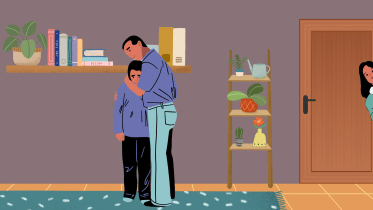Right Parenting
Trust with children: How to build it, how to keep it
Parents and children have the most loving, and yet, the most delicate relationship ever. Building trust with children can be one of the hardest things a parent will ever do, and retaining that trust over the years is an even bigger challenge. However, it is this one thing that can get both parties through the most turbulent times of life with each other and therefore, is something worth knowing all about.
5 November 2022, 09:21 AM
Parenting: Mothers open up sharing their biggest regrets
It is not uncommon for parents of young children to wish their children would grow up faster and not need their parents quite as much, especially after his fourth public meltdown, or on her third consecutive nightmare interruption in a night. However, here’s presenting the biggest contradiction of them all: parents miss this connection when it’s gone. Mothers, especially those whose children have hit puberty or flown out of the nest, often feel the absence of this kind of connection much more acutely than others because they have understood how fleeting it is.
12 October 2022, 11:43 AM
Lecture vs storytelling: The dos and don’ts of parenting
Children will test your patience in more ways than one, and on more days than one. They will squabble, irritate others, eat more sweets than necessary, get terrified of doctors and darkness, and so on and so forth. And for all these diverse problems under the sky, parents have but one solution: lecture. But is having a lecture for each incident all that handy? Research says, storytelling is a better option.
8 September 2022, 13:06 PM
How physical punishment harms children
Raising your hand or voice, for that matter, on a child simply because they are weak and younger than you in age, is an act of cowardice on the part of the parent. Some fantastic and in-depth research has been done in this field. Psychologists and paediatricians both agree that physical abuse is extremely harmful for a child, having both physiological and mental consequences. Abuse comes in many forms and what is equally surprising is that a lot of parents have no idea that many of their actions can count as abuse.
28 July 2022, 11:29 AM
Drawing the line
Parenting is one of the hardest jobs in the world – that is, when someone is planning to do it right.
13 May 2016, 18:00 PM






